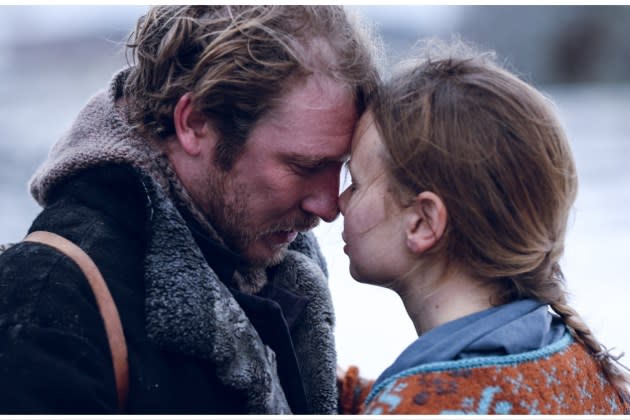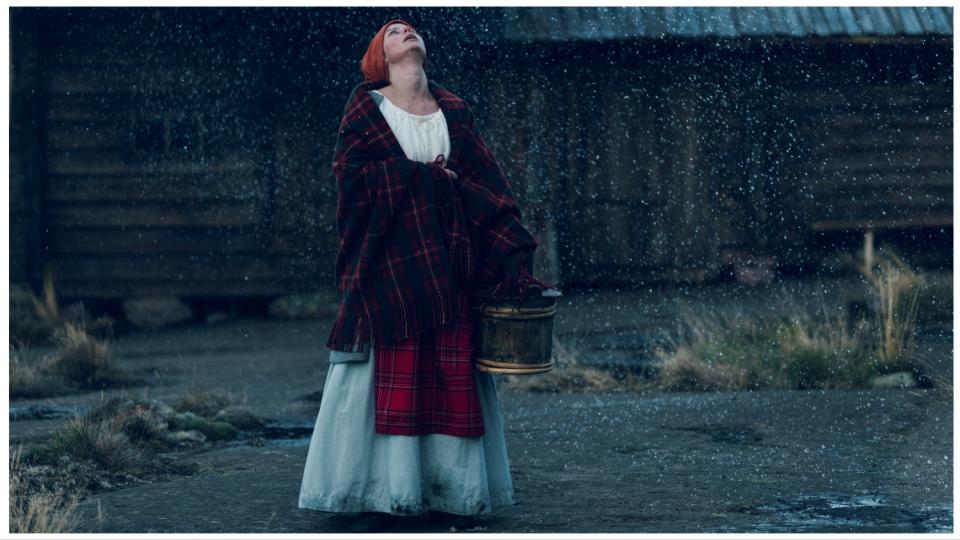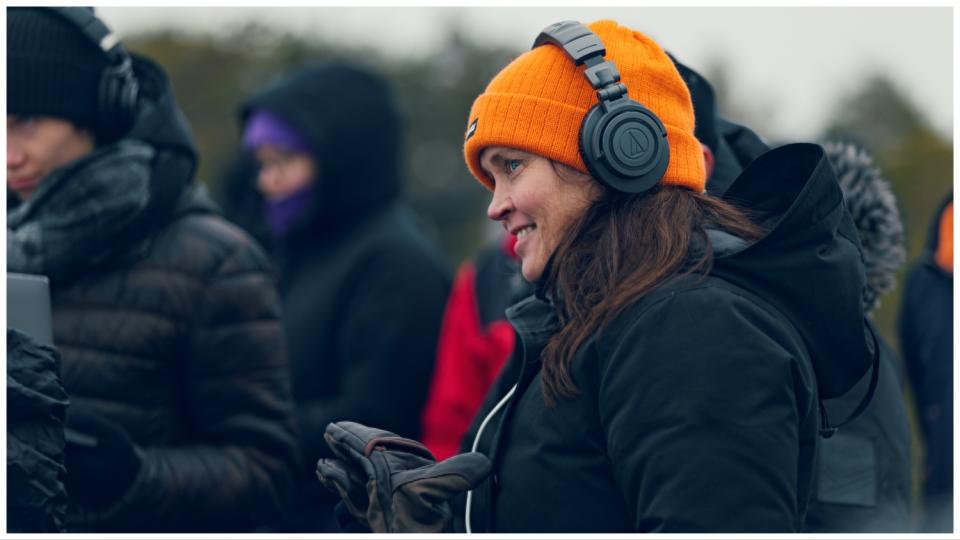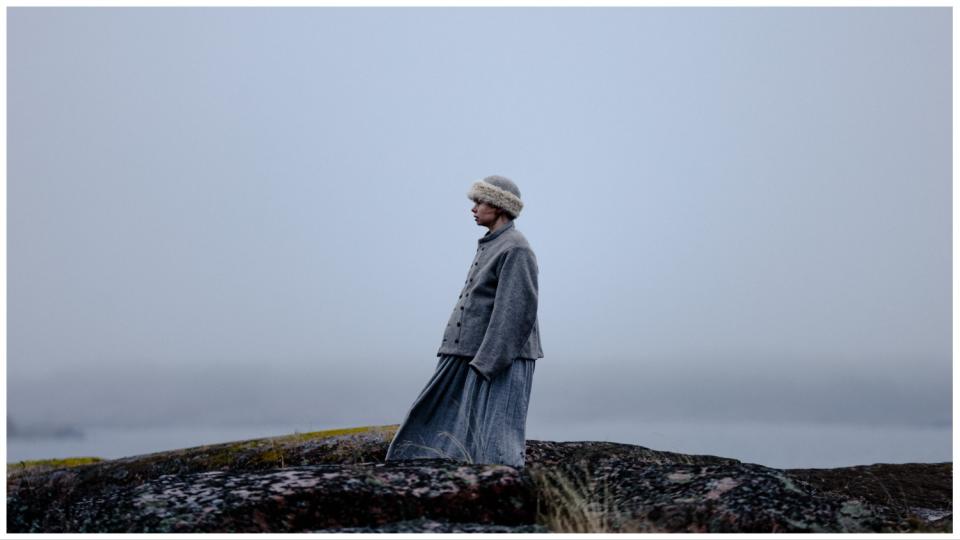Finnish Director Tiina Lymi Is ‘Not Afraid Anymore’ and Neither Is ‘Stormskerry Maja,’ New Feminist Heroine With a ‘Cool Head and a Warm Heart’

Finnish director Tiina Lymi decided to “go big” for “Stormskerry Maja,” set in the 19th century. Based on a series of books by Anni Blomqvist, it has been selected for International Film Festival Rotterdam and Goteborg.
“It had to be done this way. It’s about life and death, love, sorrow and lust. Big emotions. I really respect my producers’ decision to commit to this budget. €4 million is nothing in the U.S., but it’s a lot in Finland.”
More from Variety
In the film – produced by Markus Selin, Jukka Helle and Hanna Virolainen for Solar Films and sold by Picture Tree Intl. – a young peasant woman, married off to a man she barely knows, moves to a remote island. Her new environment isn’t exactly welcoming, but Maja falls for it quickly – and for her new husband Janne.
Lymi shot the film on Åland Islands. “It’s a crazy place in the middle of the Baltic Sea. You bring an actor to do one scene and it takes three days. It’s expensive, slow and it has given me many gray hairs, but it really paid off visually,” she says.
“I wanted to make an epic film, so I just surrendered to it.”
Just like her characters, played by Amanda Jansson and Linus Troedsson, who go from strangers to an affectionate couple, patiently exploring intimacy.
“If you have two people who love each other, I am sure there’s laughter and pleasure. It was important for Maja to make that first move. It’s a very courageous gesture to take off your clothes like that, but they are all alone: it’s like ‘The Blue Lagoon’ all over again. As Janne says: ‘God is the only one watching and he has other business to take care of.’”
Their private moments brought levity to the film.

“I saw their nakedness as a comedic element. Crazy naked people on an island – I love it! They have their own way of being together. With Maja, everyone sees a ‘weird’ girl – Janne sees an artistic mind. They allow themselves to be as they are and if you are loved like that, you can reach your full potential.”
While Maja and Janne’s love anchors the story, there could only be one protagonist.
“I had to be strict about it: this is Maja’s movie. I am showing the world through her eyes. When the Crimean War comes to her doorstep, she doesn’t understand who these people are and why they are in her home, and yet she decides not to hate. This was the question, all the time: ‘What does she see and what does she feel?,’” explains Lymi.
“She is no Wonder Woman: Maja has a cool head and a warm heart. There are many Finnish women like that. Amanda, even though she’s Swedish, reminded me of that stamina and strength.”
As well as people who still follow their intuition.

“I believe we all have this instinct: we just choose to ignore it. My great grandmother knew a lot about nature, she would combine old spells with prayers. It’s about listening to nature and Maja certainly has this talent.”
It won’t always save her from pain. But despite all the hardships Maja has to experience, Lymi never wanted to make her a victim.
“When I wrote about war taking over the island – which doesn’t happen in the books – I heard mentions that sexual assault would be probable. But you know what? I’ve seen enough of these scenes,” she says.
“It’s enough when one soldier asks her: ‘Have you been lonely?’ As women, we have all been on a bus where there is this one drunken man. We have all been sexualized, even as children and girls. That’s the way things are, even though they shouldn’t, but I didn’t want violence in there.”
As Maja grows older and becomes a mother, she begins to question rules established by men.
“It’s a feminist film in the simplest way, because it all starts with basic questions. ‘Why are you taking my money? Why do I have to wear a skirt?’ She is drawing her own conclusions, wondering: ‘In what ways am I less than a man?’ I wanted to say that line in my own life. Many, many times.”
Lymi, who started out as a popular actor, wasn’t immediately accepted as a director.

“It was hard. I have heard many diminishing words, there was a lack of trust. Nowadays, it’s much easier – so many actors are directing too. When I started, it was almost unheard of. Also, I never studied directing and it irritated some people. Even though I was on so many sets for so many years!”
She has since helmed hit movies “Lapland Odyssey 3” and “Happier Times, Grump.”
“I didn’t really want to be an actress. At first, my very realistic idea of the future was Indiana Jones who also has a band,” she laughs.
“One time, when we were rehearsing a play, I caught myself thinking: ‘It should be done this way.’ That led to writing and directing for the theater. Later, I made a short and went: ‘Oh my God, this is it. This is what I want to do.’”
“I should have started earlier, but I am not afraid anymore – let’s put it this way. As a director, I can take on a lot. I just hope I will have enough time to tell all the stories I want to tell.”
Best of Variety
Sign up for Variety’s Newsletter. For the latest news, follow us on Facebook, Twitter, and Instagram.


